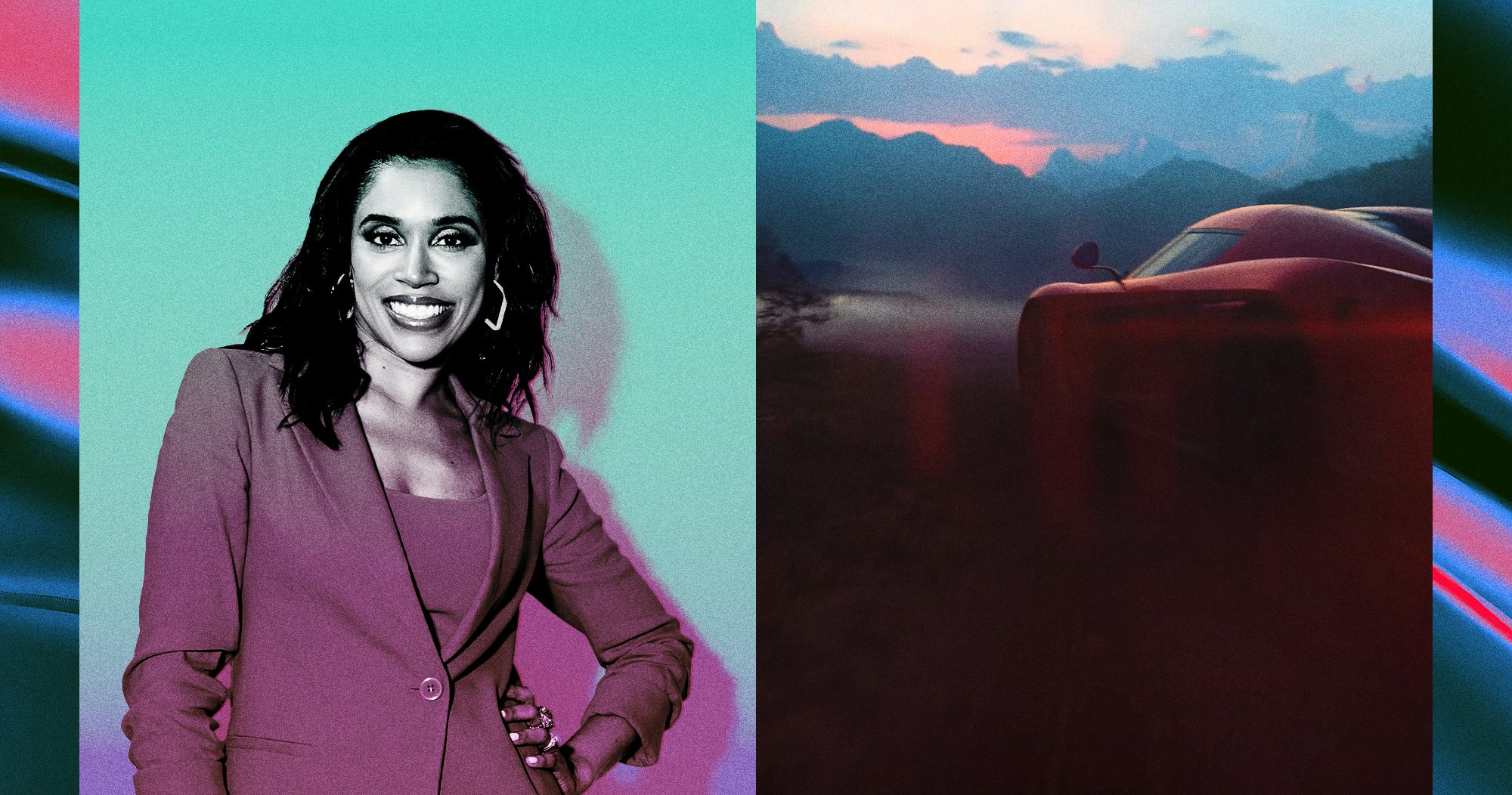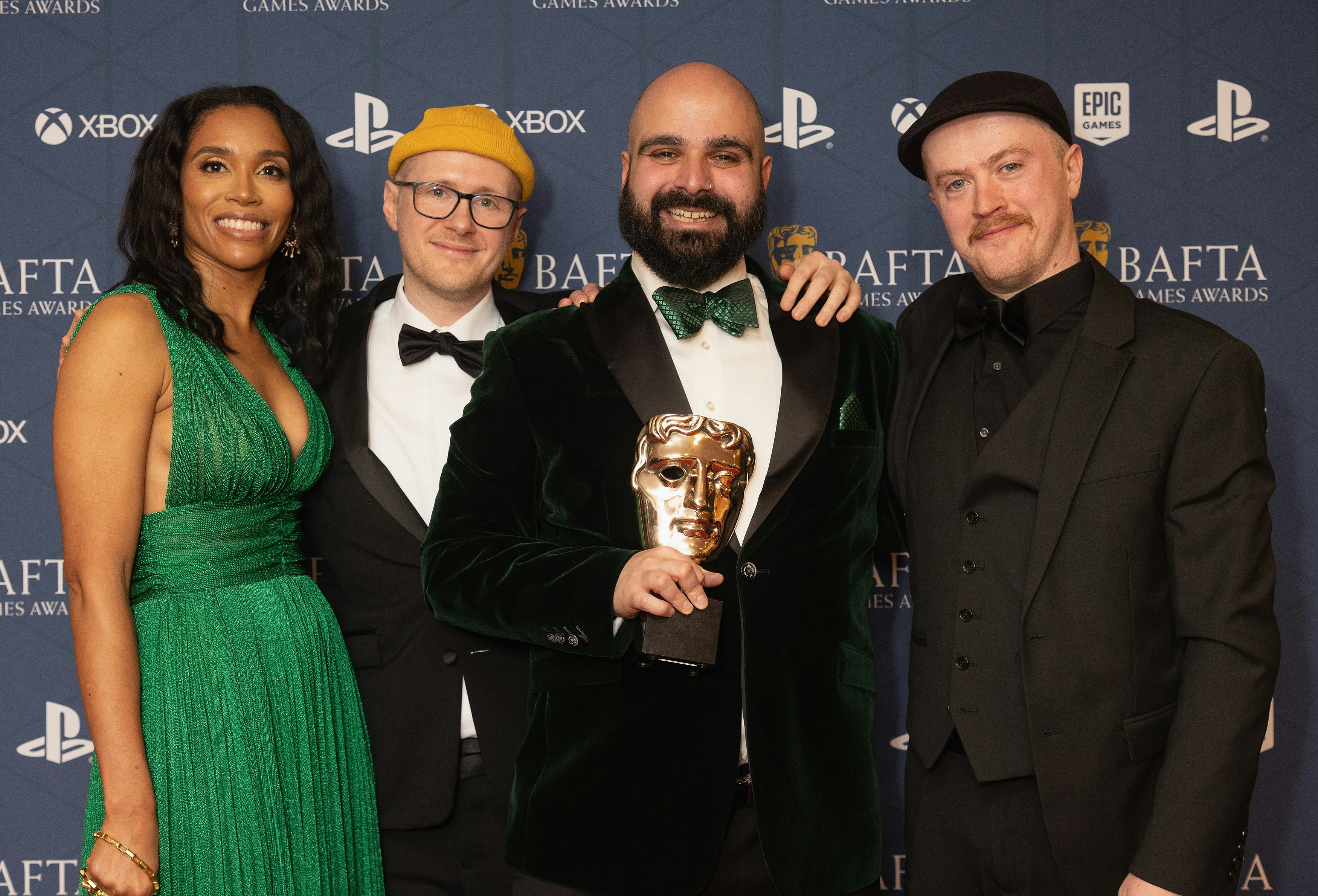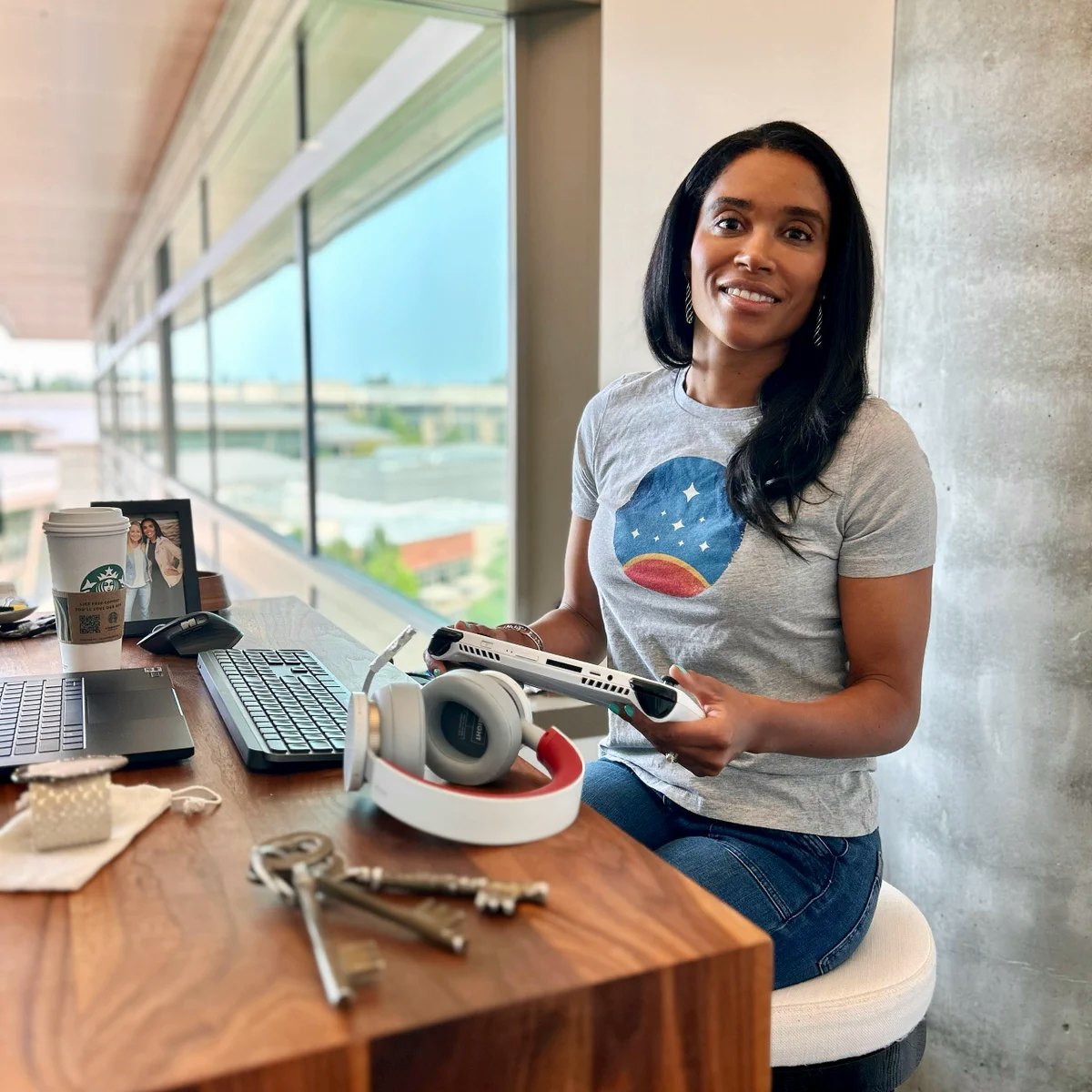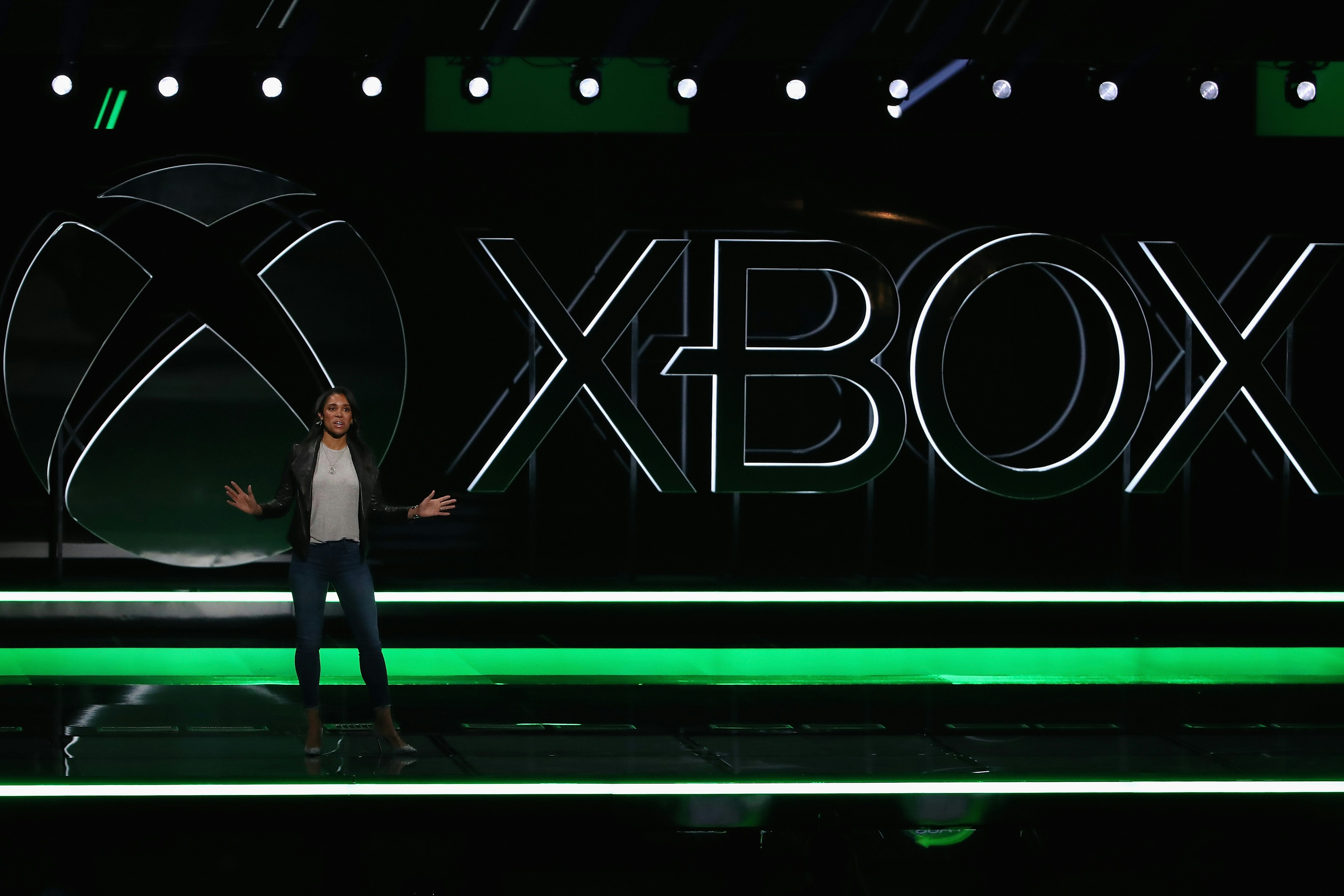
Sarah Bond can see me. And I don't just mean that my camera is working. She flashes her gleaming Disney Princess smile and addresses me by name multiple times. We jump in at the deep end. Why do video games matter so much to nearly 3 billion people, we ponder, by which we both clearly mean, “Why do games matter so much to us?” Unlike me, Bond has actually done her homework on the subject. You’d expect as much. She is, after all, head of creator experience and ecosystem at Xbox.
“There's three types of empathy. There's cognitive empathy, where you can understand another person’s perspective. Then there's emotional empathy, where you actually imagine that you are that person. The last one is compassionate empathy, which means that you decide to act differently than you normally would," she says.
This might sound like Psychology 301, but really Bond is laying out a radical view of the gaming industry as a whole. "Games take you all the way through this arc. And they are the only form of media where you can have that experience with another person,” she explains. Gaming to Bond is a radical art form, and games have the ability to bring people together in a way that supersedes any other art form.

In her six-plus years at Xbox, Bond has worked to democratize the way we make and play games. She has been instrumental to the success of Game Pass, which launched in 2017 and has been a boon to smaller developers and projects that might otherwise struggle for visibility on traditional storefronts.
“To me, the most important thing is that everybody has an equal opportunity to share their story or their perspective, and have that be experienced through a game,” Bond says. “When you look at the prevalence of game creators, they are predominantly located in East Asia, North America, and Western Europe. If you get more geographic inclusion, you get more types of stories.”
“We’re at the cusp of what it means to have citizen creators, of playing a game and creating a game being synonymous.”
But for Bond, breaking down barriers in development isn’t just about putting indies on Game Pass. It’s also about giving underrepresented and aspiring creators access to the tools they need. Microsoft’s ID @ Xbox program, which has paid out more than $4 billion to independent developers in its 10-year history, is a vital part of that project. But along the way, Bond and her colleagues realized that would-be creators needed more than just game engine fundamentals and development kits.
“When we first started, it was a lot more about tools, access, support — functional things. Then we got the feedback that what people also wanted was community,” Bond says. “Gaming is close-knit, but there’s a lot of uncertainty. There's a lot of people you don't know, there's a lot of things you don't know. You're gonna make mistakes. People want a safe place to get that advice, that support, and that community.”

Bond contends that we’re on the precipice of a YouTube or SoundCloud moment in the industry, where technology can “open up” gaming in a way that allows the community to exercise far greater creative freedom than ever before. Sandbox games like Roblox and Fortnite already allow players to do this on a smaller scale, but we haven’t quite reached the point where you can quickly make or share an interactive experience on your phone or laptop. Not yet, anyway.
“We’re at the cusp of what it means to have citizen creators, of playing a game and creating a game being synonymous. I'm excited to see where that takes us,” she says. “Music and video have had far more democratization of creators. I see the need so clearly. I meet so many people who want to create a game.”
“You're really going to see game development be further democratized by the power of AI.”
Like it or lump it, Bond says artificial intelligence is probably going to be a big part of that. As is the case more broadly, AI has been a divisive topic within the gaming community in recent months. Actors have expressed concern that their voices and likenesses could be used without their consent. Others argue that the technology could benefit gamers with disabilities by furthering innovations in accessibility.
It’s not especially surprising that a Microsoft executive would be bullish on AI — the company has invested heavily in its own research in the space, as well as in ChatGPT maker OpenAI. Still, where games are concerned, removing technical barriers to creativity is a compelling prospect.
“You're really going to see game development be further democratized by the power of AI,” Bond says. “There's going to be a game developer or game creator copilot that makes it easier for anybody to create a game, even if they are not deeply schooled in computer science or how to use Unity.”

ID @ Xbox and Game Pass are widely popular, but they aren’t the reason Microsoft’s gaming division has been the subject of constant media attention over the last 18 months. In January 2022, Microsoft announced plans to acquire Activision (the industry titan behind cash-cow franchises like Call of Duty, Diablo, and Candy Crush) in a blockbuster $69 billion merger that’s prompted a deluge of speculation from the gaming community about possible future consolidation — as well as scrutiny from regulators the world over about the deal’s potential impact on competition.
So how does Microsoft buying the world’s third-largest third-party game developer (behind China’s Tencent and NetEase) mesh with Microsoft’s vision of a more democratic games industry? Bond says that expanding Xbox’s reach beyond consoles is critical to that mission.
“There are 3 billion gamers in the world, and the vast majority of them are on mobile. After that is PC. Our strengths are in console, which is the smallest part of that. To truly open up both gameplay and game development, we need to have expertise, knowledge, and a footprint across all of those areas. That's what attracted us to Activision. They have very complementary strengths in mobile and PC,” she explains.
Since announcing its plans for the Activision deal, Xbox’s top brass have argued that its aim is to allow people to play the games they like on the platforms and devices they prefer. From Bond’s perspective, Game Pass, ID @ Xbox, and the Activision deal all work to further that same goal. Even so, she acknowledges that there are still significant technical hurdles to overcome.
“Right now, it's extraordinarily hard to make a game that works on all devices. You essentially have to make four or five different games. There is an enormous amount of back-end complexity to cross-play, progression, and different forms of input. That's got to change because it's not what players want. There's a whole technical stack that's going to have to converge in the back end to open that up,” Bond says.
With the Activision deal looking all but stitched up, and the recent launch of Bethesda’s long-awaited spacefaring epic Starfield, the future of Xbox is as bright as it's ever been. But when I ask Bond about the most meaningful part of her tenure at Microsoft, her answer is unexpectedly personal in a way that calls back to that mission of making games more democratic: “When I was on stage at E3 2019.”

It’s no secret that gamers can be a tough crowd, and the industry has long been notorious for cultivating a boys’ club mentality. Understandably, Bond was daunted by the prospect of venturing into the trolls’ den. “I'd argue that wasn't my best actual showcase performance, but that one was the most meaningful. We had never had a Black woman come up on stage before. Xbox wanted me to do it, but they were setting my expectations that it may be very rough,” she says. “There's days of rehearsals before the live show. At one point, someone who had worked on that show for 20 years told me, ‘We never thought we would see this. We're so proud of you.’”
That moment was a turning point.
“I realized I didn't get to be scared or nervous — that was a selfish feeling. I had to do it for everybody who has been told that they weren't good enough, or they didn't look right. I was going to do it for them. So I went out and did it,” Bond says. “I was not nervous. It was like I left my body. I started crying when I walked off stage. Because it was good. I didn’t let anybody down. I could be me. It shattered the perception that having me on stage was a compromise or a trade-off. That I'm going to do a worse job. Now, other women don’t have to deal with that. I'm most proud of the fact that I had a hand in changing that perception, so people won't say stuff like that anymore.”
Bond did change that perception. Back in June, Geoff Keighley was roundly razzed for neglecting to include women developers and presenters in his annual Summer Game Fest showcase, a misstep he made doubly sure not to repeat during August’s Gamescom Opening Night Live. Now, fans see it as weird and laughable for women and people of color not to be included on gaming’s biggest stages. That’s empathy in action, right there.







